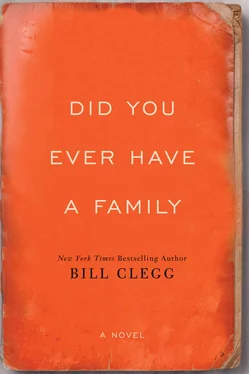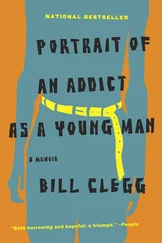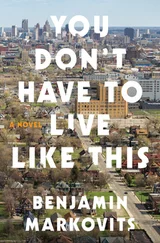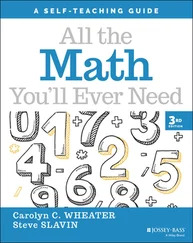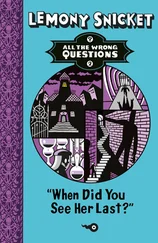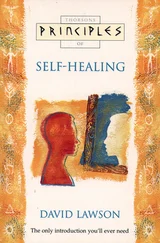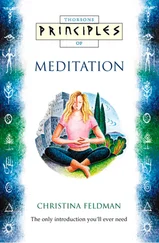After that Christmas, Penny and I were, for each other, clearly the only people we could count on. Besides my job at the Lowell and the people I worked with there, Penny was my entire world. Every free weekend or vacation I had I was on a plane to Seattle to see her. On one of those trips I met Kelly. She was the manager at the Holiday Inn not far from Penny’s sober house, and one night after I’d flown all day from New York, she checked me in. She was agitated, I could tell, but professional. I found out later she was working the check-in desk because one of her employees had called in sick at the last minute, and as a result she had to miss her nephew’s basketball game. There she was, in her gray cords and green Holiday Inn blazer, wrinkling her nose like she always does when she’s pissy. I remember watching her for a long time, her head down, red hair jammed into a ponytail with loose strands floating from her head like spun gold, processing my credit card and mumbling under her breath all the while. Finally, she looked up, and for the first time I saw her eyes — green and gold and flashing like Christmas trees from her freckle-splattered face. I don’t know how someone like me, who had never before even had a girlfriend, could recognize love when it arrived, but I did. I’d dated a little in New York, but women scared me. They were either too brash and manly or drank too much. People weren’t as open then either, so if I was attracted to someone, most of the time I didn’t know if she was gay. And I’ve never been the aggressive one, never the one to make a move or give someone my number. So I worked all hours and in my free time talked to Penny on the phone and listened to her tell me about the meetings she went to and the sober women she lived with. And I went to see her. This went on for a couple years before that night at the Holiday Inn. I saw those Christmas-tree eyes and my life changed.
Three nights? she asked as she looked at my reservation. I don’t think I managed more than a nod in response. You happen to be free for a drink or a bite any one of those nights? Just like that. After two words and a nod she asked me out. Kelly has never been shy, and thank God. I nodded again, and the next night she took me to a steak house near the harbor, and the night after that she made me cream of asparagus soup and a big salad with pears and walnuts and chunks of avocado. It was the best salad I’d ever had. I know it sounds insane, but the next night I was on a plane to New York drafting my resignation. I was twenty-eight and had been alone for a long time. I watched people my age at the Lowell pair off and make plans, throw dinner parties and go on vacations together, get engaged. I knew I didn’t want to be alone anymore. I moved in with Kelly two months later and took a job at the Westin Hotel as the night manager. It was a far fall down the scale from the Lowell, but I didn’t care. I was with Kelly and near Penny, who was clean, living in a sober house, and working in ad sales at a local newspaper. For a long while I was what most people would describe as happy. I didn’t feel that low, lonely ache I’d felt in my gut my whole life — growing up in Worcester, at school in Amherst, and in New York, especially on the weekends after Penny left. For the first time in my life, I was happy. We didn’t have a ton of friends — Kelly had her brothers and nephews, and I had Penny. Outside that circle we liked plenty of people well enough, colleagues and neighbors and acquaintances, but we mainly kept our own company. We never got wrapped up in the gay scene, which was for young people, and we weren’t young anymore. We had our small tribe and that was enough.
Kelly and Penny bickered sometimes, like sisters, and every so often a dinner would end abruptly, Penny getting worked up over something Kelly had said, usually political, and storming out. But Kelly adored Penny and was always the first to show up to her house if a pipe burst or if she needed help painting a room. She was always at our house with this girlfriend or that — none of them stuck — watching movies, cooking meals, bragging about her softball-team victories, complaining about work. She didn’t have far to go since she lived two doors down to the right from the end of our street. Kelly always used to say that if the wind was just right, she could throw a Frisbee from our stoop and hit Penny’s house.
And then, out of the blue, a couple of kids climbed through Penny’s window and raped and strangled her to death. She was alone, the girl she was seeing — she always liked them young — was still in college and asleep at her dorm that night. It was late, three or four o’clock in the morning, and no one heard her screaming. I still have nightmares about what she must have gone through, how terrified she had to have been. For a long time I didn’t speak beyond muttering. Neither did Kelly. We just sort of coexisted in near silence for months. We went to our jobs, came home, went to bed after eating something. The world had changed and we with it. Penny’s family did not come to her funeral. A friend from New York came, and a girl we knew in college, too, the staff at the paper where Penny had become associate publisher, her softball team, her sober friends. And us. I was a mess, so Kelly spoke and Penny’s boss did, too. And then it was over. There are no words precise enough to describe how wide and empty the world is when you lose someone that matters to you as much as Penny did to me. Every effort suddenly seems useless. I made it through the funeral and a few months after. But the mornings got tougher as time went by, and it became more and more difficult to get out of bed. I started calling in sick to work and eventually just said I was taking a vacation. One week turned into three, and the manager of the hotel called and said we needed to have a talk. Over the phone, without even so much as meeting with him, I told him I quit. Said those two short words, hung up the phone, and rolled back into my pillow. He called Kelly at work and told her what had happened before I could. He told her that he understood I was going through a tough time and that the hotel was happy to give me a leave and help out in any way they could, but he wasn’t accepting my resignation. Kelly came straight home, threw a handful of sweaters and socks and toiletries into a bag, picked me up out of the bed — in my sweatpants and T-shirt — and carried me out the front door and into the passenger seat of her CRX. Change of scene is all she said as she started driving — as much to herself, I think, as to me. She pulled onto 101 and headed south, along the coast. By the time we got to Astoria, just over the Oregon border, the sun was setting over the Pacific. We stayed the night at a little bed-and-breakfast, but the town was spooky — steep hills stacked impossibly with ramshackle houses, all of it tilting above a ghosty wharf. We left that morning and drove back up 101 to the edge of Grays Harbor. North of Aberdeen along 109, it’s all beach. Little houses, a few motels and beach. And above it all the widest sky I’d ever seen. It was May and still chilly, but we pulled over to the side of the road and walked past the dunes to the water. Kelly told me to take my shoes off even though the sand was freezing cold. The wind was wild, and as we walked, we leaned into it to keep moving forward. It was the first real effort I’d made in months, leaning in, not allowing myself to be blown back or down. The hard, cold sand beneath my feet felt good, and I remembered I had a body and that it could feel. We walked along the surf’s edge for twenty minutes or so and eventually we saw the Moonstone. From the beach it looked abandoned, but as we got closer, we saw a few lights on in the office and a housekeeper dragging a vacuum between rooms. The place was flaking with old paint and for the most part empty, but I was struck by the way it squatted at the edge of the beach, under that enormous blue sky and before the vast Pacific. It sat there, ugly and unbudging, the sandy wind whipping along its rusted gutters. I thought of Penny.
Читать дальше
